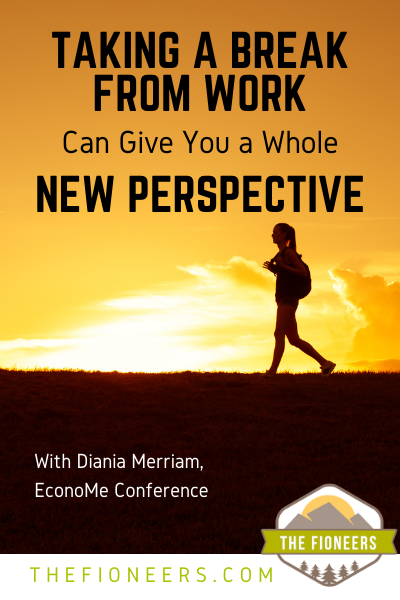
I met Diania in 2019 at a FI-focused retreat in Chicago for women. When we got chatting, I was instantly intrigued by her story.
She started out her journey to FI focused on the Mustachian principle of frugality. Over time, she’s focused a lot more on her quality of life along the path to FI.
At the retreat, I had the opportunity to hear about Diania’s experiences that shaped her FI path. Some of these include:
- Taking 2 months off of work to walk the Camino de Santiago (a 500-mile trek across Spain)
- Negotiating a full-time work-from-home arrangement and moving out of New York City
- Starting a FI-focused Conference (EconoMe) as a passion project
After hearing about all of the ways that Diania was focusing on improving her quality of life along the way to FI, I knew I wanted to feature her in a Slow FI interview.
Doing this interview has been such a pleasure. I loved hearing how taking a break from work to walk to Camino was a defining moment that gave her a whole new perspective on life and FI.
1. Tell me a little bit about you.
I’m a 34-year-old single woman pursuing financial independence in the midwest. Single feels like the wrong word as I’m very committed to a mid-western gentleman I’ve been dating for almost 3 years. The point is that I’m not married. I’m also blessed with no children.
My money story took a sharp left when I discovered the Mr. Money Mustache (MMM) blog in the fall of 2015. At the time I was living in NYC and $30k in debt for no good reason. I simply wasn’t paying attention and was living outside my means.
I like to describe finding MMM as a refreshing punch in the face. It completely changed my relationship with money/consumerism and I managed to get out of that $30k of debt in 11 months. From there, I started saving 60% of my income which opened up a ton of options for me.
To be clear, my journey hasn’t been one of deprivation.
In 2017, I negotiated a full-time remote work arrangement with my employer and moved to Cincinnati. Moving to a lower cost of living area allowed me to maintain my 60% savings rate while taking the foot off the gas a little bit on my frugality. While my housing costs decreased, I had other costs that increased such as transportation and groceries. And, I started to invest more in self-care and hobbies.
A few other ways, I’ve focused on the journey include:
- Taking a 2-month unpaid sabbatical
- Buying a house
- Adopting a dog
- Self-funding a business (The EconoMe Conference)
- Taking on a side hustle (Optimal Finance Daily)
- And, most recently, quitting my full-time job.
I still have a goal to reach FI by the time I’m 40. But, as my journey evolves, I find myself less focused on the timeline and more focused on the pathway there.
2. What was the catalyst for all of these life changes?
One big motivator for me to get out of debt was that I wanted to walk the Camino de Santiago (a 500-mile trek across Spain) for my 30th birthday.
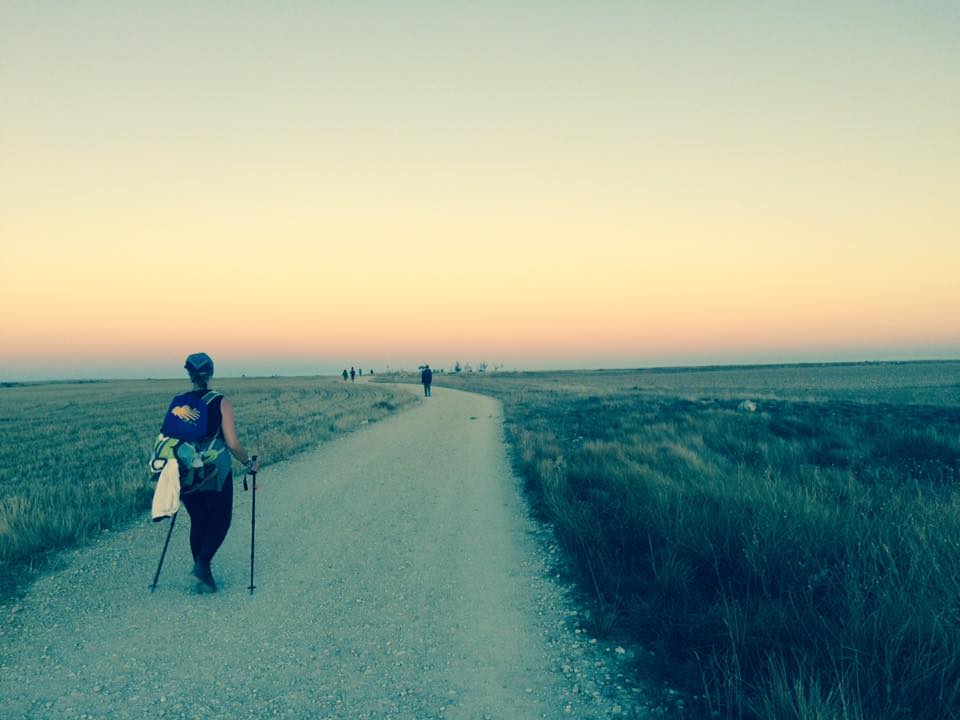

I have an aunt that I really look up to who walked the Camino in her 40s. She was planning to do it again with my uncle for his 70th birthday. She planted this seed in my early 20s and encouraged me to come with them.
In 2015, I remember asking her again, “What was that trip we wanted to take together and when does Uncle Salvatore turn 70?” When I realized that it was just 3 years away, and he was turning 70 the same year I was turning 30, I knew I needed to get busy.
I assumed I would need to get out of debt and save a bunch of money because I didn’t think my employer would give me the time off.
At the same time, I knew that I needed a change. I had accomplished every professional goal I had set for myself by 30, and I wasn’t any happier for it. I was a workaholic. I focused on work at the expense of everything else in my life including health and relationships. I had a fleeting and ever-changing circle of friends and men I dated casually. I did not have many deep meaningful relationships. My health was suffering. I drank and smoked pretty heavily and spent most of the money earned in my 20’s partying in NYC.
I can’t say I didn’t have fun, but I didn’t have much to show for it. And, I felt like I was getting bored of partying all the time.
Many people who I talked to and books I read about the Camino described a spiritual journey and an almost unconventional form of intense therapy. The Camino forces you to deal with your shit, they said, and I felt like that was exactly what I needed.
3. How did the decision to take a break from work to walk the Camino impact your quality of life?
Walking the Camino helped me see that I’m so much more than my fancy job with an office in the Empire State Building.
No one that I met on the Camino asked me what I did for work. It simply didn’t matter.
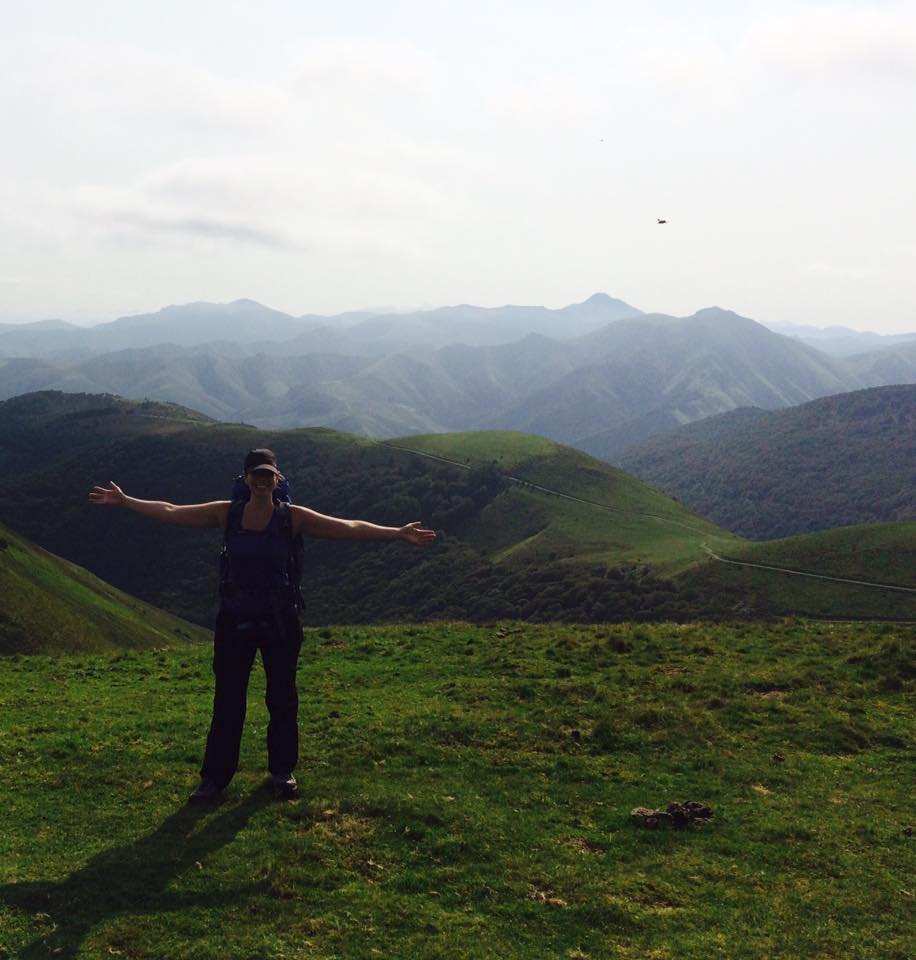

They wanted to know why I was there, what I was learning, and how I was coping with my blisters. They wondered if I got mauled by bed bugs last night, and how much weight I was carrying (both on my back and in my mind).
There is an instant sense of camaraderie when you meet another pilgrim on the trail (those who walk the Camino are known as pilgrims because historically this journey is a Catholic pilgrimage).
From the start, I was shocked at my maternal instincts and sense of generosity. I felt a strong urge to take care of the people around me. I’d often walk up to strangers and adjust their packs so they would bear more weight on their hips rather than their shoulders. I carried more water than I needed because I kept meeting people who needed water.
“Sharing is caring” became my mantra very quickly.
I know that many women are known to be nurturers and that they sometimes take care of everyone around them to their own detriment. I was not that kind of woman. Admittedly, I was pretty self-centered most of my life.
To see this nurturing side of me come out so effortlessly was simply thrilling. This sense of generosity has been something I’ve carried home with me and has become one of my most important core values.
After returning from the Camino, my approach became much more oriented toward how I can help the people around me. This has been extremely gratifying.
After I returned, I joined a mastermind group of 8 women that meet biweekly. I love brainstorming with them solutions to various challenges we face as we work toward our goals.
I also made a habit of inviting almost everyone I meet over for dinner. Feeding someone a home-cooked meal and inviting them into my home is an act of generosity that simply never gets old. It has resulted in many deep friendships. Now, I’m also surrounded by neighbors who have been equally generous with me.
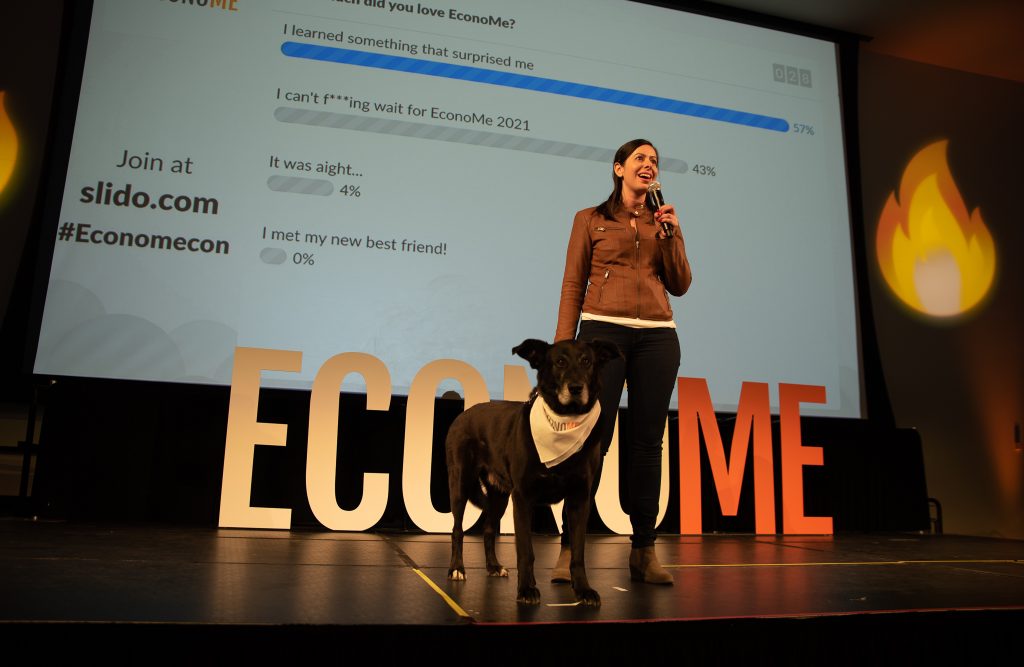

I’ve also chosen to invest a lot of time, money, and energy into The EconoMe Conference without any intention for it to provide for my livelihood. While there are certainly many non-monetary benefits, it was a huge risk to me financially to create this business. In the first year, I actually lost money. While I trust that the business will break even over time, there is also a lot of uncertainty that’s been uncomfortable at times.
I’ve found comfort in the feedback I’ve received from attendees and those who’ve watched our YouTube videos. I know that I’ve created something that other people find helpful. This act of generosity is what’s most important to me.
4. How did taking this time off of work impact your financial goals or timelines?
To walk the Camino, I gave up 2 months of income and spent about $6,000. At the time, walking the Camino was the crux of my financial goals. I thought I wanted to pursue FI, but I knew my life could go in so many directions after walking the Camino. So, I didn’t define financial goals besides staying out of debt and continuing to save as much as possible.
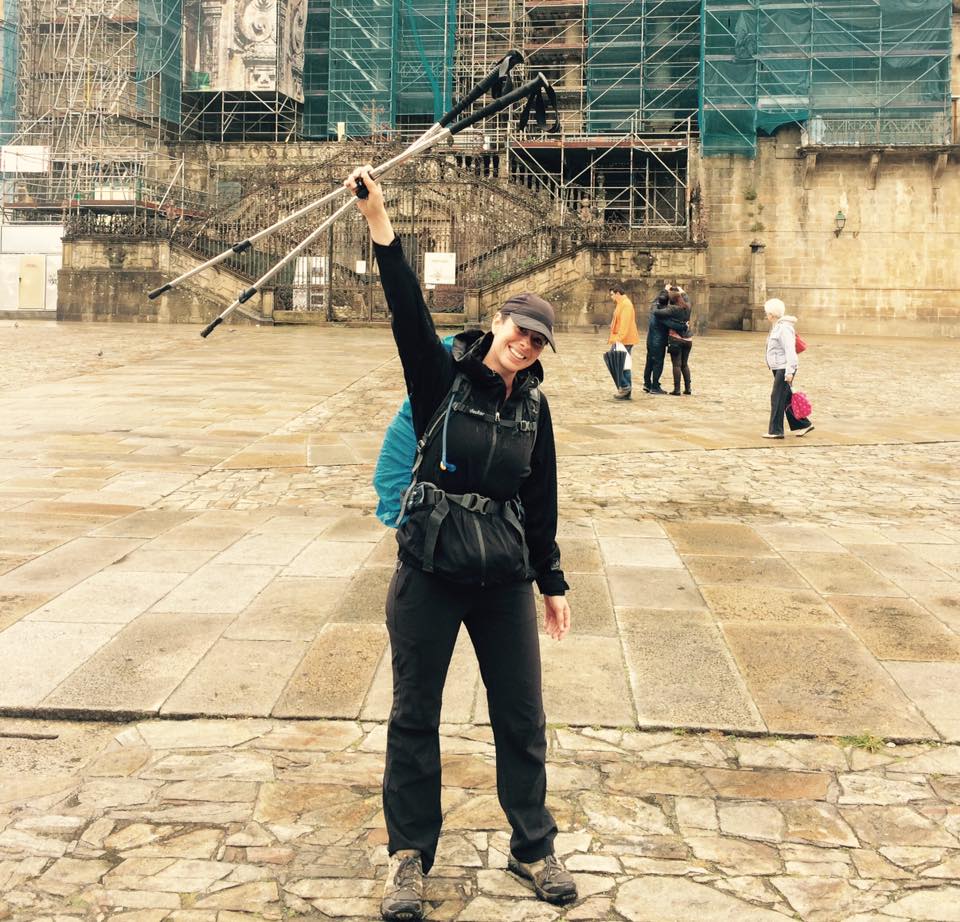

When I got back from the trip in late October of 2017, I looked at the numbers and realized I was doing better financially than I expected. I decided to put all my paychecks for the last 2 months of the year towards my retirement vehicles. That was the first year I fully funded my 401k, Roth IRA, and HSA. This is what ultimately allowed me to reach Coast FI.
It was amazing to see how orienting my finances around this one goal (walking the Camino) helped me to be in a better place financially than expected.
After I returned from my sabbatical, I formed a clearer goal to reach FI by 40. So, you could say that I’m better off financially for taking this trip even though I lost income and spent money on it.
5. What enabled you to take a 2-month break from work to walk the Camino?
Approaching the age of 30 with no partner, kids, or debt provided me with tremendous freedom. I knew I wanted to do something with that freedom.
The fact that my employer approved a 2-month unpaid sabbatical also made a huge difference. When I pitched it to them, I focused on 2 main things:
- My high performance as a salesperson
- Pointing out that if I had a child I’d be taking 3 months of maternity leave, but I wasn’t planning to have kids.
I tell myself that if they declined my request, I would have gone anyways. But, I don’t really know if that’s true. I wasn’t in the financial position then that I’m in now. I also wasn’t in the stage of my personal development where I trusted myself enough to take a big risk like that.
Knowing that I had a job waiting for me gave me permission to completely let go of work for 2 months. It felt very freeing, considering I used to be a person who prided myself on never taking a vacation.
Another thing that helped prepare me was talking to a lot of people who had already walked the Camino. I talked to about 20 different people, and they provided lots of great advice and encouragement. They recommended books and movies to help me prepare. They reviewed and commented on my packing list. They also introduced me to other people I could talk to. Having a community of support helped me to embrace this experience and get the most out of it.
6. What changes did you make in your life so you could take this time off of work to walk the Camino?
One important thing that made it possible for me to get out of debt and save money was learning to be frugal and resourceful.
This is something that I embraced with fanatic enthusiasm while in NYC and getting out of debt, but many of the habits I learned during this time still serve me very well today. Through cooking my own meals, I became very skilled in the kitchen. I started treating myself to gourmet meals for breakfast, lunch, and dinner on about $40/week. Since I was going out less, I started hosting elaborate dinner parties in my one-bedroom Brooklyn apartment.
I hosted and attended clothing swaps and ended up with a closet full of fashionable and free hand-me-downs from my friends. I shared my internet with my downstairs neighbors and cut that bill in half.
I built a sharing community in my apartment building so that we all had a network of convenient people to call on when we needed to borrow a hammer, a cup of sugar, or whatever need arose.
I learned to make my own laundry detergent. I stopped wearing makeup and became comfortable with what my face looks like without make-up. I started spending more time reading, journaling, and working out.
Self-imposed restriction and frugality led me to a whole lot of self-improvement. It is laughable to me that there were people who felt sorry for me, thinking that I felt the need to “deprive” myself.
Deprivation is definitely not the word that I would use to describe this period of self-discovery. Yes, I was saving money. More importantly, I was finding ways to get my needs met that were ultimately superior and more satisfying than spending money on convenience.
Another important change was deciding to move away from NYC.
In 2016, after getting out of debt and trying to decide what was next for me, I visited a friend who had recently moved to Cincinnati. When I arrived, it felt like time slowed down (and not in the maddening way a New Yorker feels when they are surrounded by people with no sense of urgency). It was a nice, calming, refreshing feeling of slowing down.
I was feeling “peace of mind” for the first time in my life.
NYC was dirty, loud, busy, crowded, and everyone there (including me) seemed agitated. Cincinnati was clean, quiet, and people seemed genuinely kind and friendly.
I decided to move to Cincinnati in May of 2017 following a big 30th birthday celebration in NYC.
Planning out the logistics of walking the Camino influenced my decision to leave NYC. Mainly because my landlord wasn’t going to allow me to sublet my apartment for 2 months while I was away. Knowing that I’d need to find an apartment that would allow it or a short-term rental for 5 months pushed me to try something new.
After moving to Cincinnati, I immediately started training to walk the Camino. This forced me to do a lot of walking around Cincinnati, and I fell in love with the city even more. That feeling has never left.
To this day, when I tell people I moved from NYC to Cincinnati, I’m often met with a puzzled expression. “Well that must have been a big change!”, they will often say. To which I respond, “Yes, a change for the better!”.
7. How did your pursuit of FI help or hinder your decision to take the break from work?
At the beginning of my journey, I took a pretty extreme approach. I cut my expenses, and I was hyper-vigilant about every dollar I spent. In a way, I was trying to be the female, NYC-version of Mr. Money Mustache.
This approach worked well for a period of time and helped me learn a lot about myself. The skills I built during that time still serve me very well today.
I also realized that level of intensity was not sustainable for my whole journey to FI.
I knew that to continue learning about myself on the path to FI, I needed to start asking bigger questions. Rather than figuring out more ways to increase my income and decrease my spending, I started asking better questions:
- How do I want to spend my time?
- Who do I want to surround myself with?
- What do I want to create?
I also realized that I wanted to write my own unique story. While other people’s FI stories can provide inspiration, I can’t copy their path. I don’t want to be Mr. Money Mustache; I want to be me!
There was a period of time where I would feel bad about myself for having a 45% savings rate instead of a 60% savings rate. How ridiculous is that?!?
Ultimately, pursuing FI made walking the Camino possible. If I hadn’t walked the Camino, I may have continued down the path of being hyper-focused on FI, and I may not have made many of the other decisions that have made my journey more satisfying.
8. What have been some of the downstream impacts of taking a break from work to walk the Camino?
Walking the Camino showed me that I can do hard things. When I got back, I did more hard things:
- I bought a house by myself
- I self-funded a business, The EconoMe Conference
- I took on my first side hustle as the host of the Optimal Finance Daily podcast
- Most recently, I decided to quit my job
Over the last year, my work situation changed drastically. I had been with the employer for 9 years, and it became very clear that I was no longer valued.
Because I’m only 6 years away from FI, my original plan was to stay with my employer until I reached my FI number. It was disorienting to acknowledge that my plans needed to change due to the work environment becoming intolerable.
This was an obstacle but also an opportunity.
Because I’m now Coast FI and have two years of living expenses saved in cash, I was able to seize the opportunity to pursue self-employment. I have 14 different income streams that I’m really excited to experiment with.
If I was solely focused on reaching FI as quickly as possible, I’d probably keep my head down and tolerate the misery in exchange for the 6-figure salary that would have gotten me to FI in 6 years.
Instead, I’ve chosen to live in uncertainty. I could either reach my FI goal much faster or slower based on my decision to work for myself. The best part of this uncertainty is realizing that it doesn’t matter.
I’m simultaneously pursuing FI and creating a life that makes it irrelevant if I ever reach FI.
9. Why and when do you think someone might consider “downshifting?”
After a certain point of financial stability, we can buy the freedom to start asking bigger questions. That point might look different for different people. It could be when you reach debt freedom or Coast FI.
Most of us are pursuing FI because we want more time and freedom in our lives. We orient ourselves to working harder now, so we can have freedom later. When you become so focused on reaching a FI number, it’s easy to get lost and forget the purpose of pursuing FI in the first place.
It’s as if we assume that the only way to buy time and freedom is by reaching FI. In reality, we may actually get the time, freedom, and space we are looking for much earlier, simply by working less.
Sometimes, we need a push. I decided to downshift when my work situation changed. I took a look at the numbers and realized that I was Coast FI, and I had F-you money (which I define for myself as 2 years of expenses saved in liquid accounts).
I realized I unlocked a new level of the game. I still need to work, but I no longer need to work for someone else.
10. What advice do you have for someone considering a similar decision?
Let your curiosity be bigger than your fear.
Thank you so much, Diania, for sharing your story with us!
The thing that I’m most struck by from Diania’s story is the transformational impact of taking dedicated time to get out of the “grind” of work.
For Diania, this was taking a break from work to walk the Camino. She was able to completely disconnect from work and explore a different part of herself.
Through this experience, she learned that her identity wasn’t defined by the work that she did. She realized that her identity was actually defined much more by innate characteristics like her care for others and her generosity.
Especially in American culture, we often get so caught up in work that it’s easy to forget to cultivate other important parts of our lives.
This experience of taking a break from work to walk the Camino provided her with the self-awareness of what she really wanted out of life and the courage to take steps toward that vision.
As a result, Diania is using her financial freedom to design her best life, even if it makes things a little uncertain.
My favorite quote from the interview relates to this uncertainty.
Diania says, “I could either reach my FI goal much faster or slower based on my decision to work for myself. The best part of this uncertainty is realizing that it doesn’t matter. I’m simultaneously pursuing FI and creating a life that makes it irrelevant if I ever reach FI.”
Like Diania, taking a break from work in 2018 to deal with a mental health challenge was transformational for me. I learned so much about myself and what I wanted out of life. I learned that my identity was so much bigger than my career.
Stepping away from work for a period of time provided the fertile soil needed to form a whole new perspective. Now, I’m focused on making so many small changes that when I reach FI, I won’t need to change anything. I’ll already be living my ideal life.
What could you learn if you stepped away from work for a few weeks or a few months?
If Diania’s story resonated with you, I’d encourage you to check out the EconoMe Conference taking place on November 13th and 14th, 2021! Early Bird Tickets are now on sale through April 10th. If a friend’s wedding is not moved to that weekend, we’re planning to attend!
NOTE: If it isn’t safe to gather in large groups by November, the conference will simply be rescheduled for March 19-20th, 2022.
If you’d like to follow Diania’s journey, you can find her in the following places:


- Optimal Finance Daily Podcast
- EconoMe’s YouTube Channel
- EconoMe’s Facebook Group
- Twitter: @EconoMeCon
- Instagram: @EconoMeCon
























